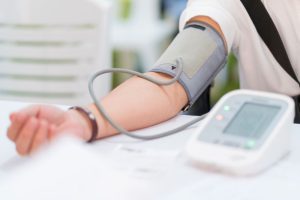Cancer – Educate Yourself about the Risks and Preventative Measures
We all know someone who has had their life changed by cancer. It could be your husband, your sister, a work colleague, or it could even be you. We all know people who have fought the disease and survived, but sadly, we all know someone who has lost their battle with this devastating disease.
Cancer is a world-wide health threat, and it can affect anyone at any age, often without any prior warning or symptoms.
Although cancer is a non-communicable disease, meaning that you cannot catch it from another person, it is considered to be an epidemic, resulting in almost 9.8 million deaths worldwide in 2018.

So, what exactly is cancer? Cancer is a generic term for a large group of diseases that can affect any part of the body. One defining feature of cancer is the rapid creation of abnormal cells that grow beyond their usual boundaries. These cells then invade adjoining parts of the body and spread to other organs. This is known as metastasizing, which is the major cause of cancer-related deaths.
In the Philippines, cancer claims the lives of one in every ten people each year, creating a burden on the health system, support networks, communities, and most importantly, families and friends of those affected. The most common types of cancer in Filipino men are lung, stomach, liver, prostate and colorectal cancer. In Filipino women, breast, cervix, lung, ovarian and liver are the most commonly diagnosed.
The third week in January is National Cancer Consciousness Week. It is a time to educate yourself about the risks you could be putting yourself at, learn about early detection practices, and implement positive lifestyle changes that will help you to lead a balanced, health-conscious and potentially cancer free life. With the new year having just begun, it is a great time to head down a new path towards healthy living, and knowledge about cancer.
The biggest self-imposed risks for cancer are physical inactivity and obesity, improper diet and nutrition, smoking and the over-use of alcohol. Some forms of cancer do have a genetic link, with approximately 5 to 10 per cent of all cancers being caused by a genetic mutation. Additionally, if you have a family history of cancer, then there is an increased risk that you will also develop cancer during your lifetime. It is important to note that you cannot inherit cancer, only the genes that may contribute to its development.
 Luckily, there is a way to boost your knowledge about cancer, as well as revealing your unique genetic predisposition to developing a number of commonly diagnosed cancers. The Genetic Predisposition Health Test from EasyDNA Philippines uses your DNA profile to establish whether you have a genetic predisposition toward developing any one of 34 diseases and conditions, including breast, colorectal, bladder, lung, prostate and skin cancer. The test will also provide results about your level of risk of developing other diseases, as well as your estimated lifetime risk compared to that of the average population.
Luckily, there is a way to boost your knowledge about cancer, as well as revealing your unique genetic predisposition to developing a number of commonly diagnosed cancers. The Genetic Predisposition Health Test from EasyDNA Philippines uses your DNA profile to establish whether you have a genetic predisposition toward developing any one of 34 diseases and conditions, including breast, colorectal, bladder, lung, prostate and skin cancer. The test will also provide results about your level of risk of developing other diseases, as well as your estimated lifetime risk compared to that of the average population.
After examining your genetic profile, EasyDNA Philippines creates a personalised report, ranking each condition against your estimated lifetime risk, which will be either high, medium or low.
High risk conditions are the ones where extra care should be taken by you: by requesting more frequent screening diagnostics of the disease, or by making the necessary lifestyle adjustments.
The Genetic Predisposition Health Test is a wonderful investment in your health future. Coupled with improved diet and exercise, and reducing smoking and alcohol consumption, you will be well on your way to a healthier, happier and more cancer-educated 2020.




